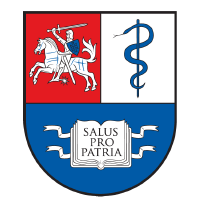Topic Menu
► Topic MenuTopic Editors


Atrial Fibrillation: State-of-the-Art Techniques and Future Perspectives for Diagnosis, Rhythm Control, and Stroke Prophylaxis
Topic Information
Dear Colleagues,
Atrial Fibrillation (AF) is the most common sustained arrhythmia in adults, with an estimated prevalence ranging between 2% and 4%. AF has a significant impact on quality of life and functional status, which may lead to depression in up to 20% of cases. Among other clinical features, AF is responsible for 20%–30% of all ischemic strokes and significantly increases the risk of heart failure and dementia. As such, AF poses a substantial burden for healthcare systems, requiring a multidisciplinary approach for early detection, effective treatment, and complication prevention. In recent years, substantial efforts have been devoted to optimizing rhythm control strategies and stroke prophylaxis. As a result of technological advancements, transcatheter ablation has become the most effective arrhythmia control strategy currently available. Specifically, the adoption of novel non-thermal energy sources for cardiac tissue ablation has substantially improved the safety and efficacy of this approach. Similarly, new-generation devices to exclude the left atrial appendage from systemic circulation have proven noninferior in preventing thromboembolic events compared to oral anticoagulation in high-risk patients. The aim of this Topic is to provide new insights into the pathophysiology, prevention, and treatment of AF, with particular emphasis on ablation and stroke prophylaxis.
Dr. Domenico G. Della Rocca
Dr. Cristina Chimenti
Prof. Dr. Gian Battista Chierchia
Prof. Dr. Carlo De Asmundis
Topic Editors
Keywords
- atrial fibrillation
- ablation
- stroke
- early diagnosis
- rhythm control
- arrhythmia
- pulsed field ablation
- atrial flutter
- tachycardia
- thromboembolism
- cryoablation
- atrial remodeling
- pathophysiology
- mapping
- dementia
- comorbidities
- prevention
- left atrial appendage
Participating Journals
| Journal Name | Impact Factor | CiteScore | Launched Year | First Decision (median) | APC |
|---|---|---|---|---|---|

Cardiogenetics
|
0.9 | 1.4 | 2011 | 32.1 Days | CHF 1400 |

Hearts
|
- | - | 2020 | 19 Days | CHF 1000 |

Journal of Cardiovascular Development and Disease
|
2.3 | 3.7 | 2014 | 28.8 Days | CHF 2700 |

Journal of Clinical Medicine
|
2.9 | 5.2 | 2012 | 17.7 Days | CHF 2600 |

Medicina
|
2.4 | 4.1 | 1920 | 17.5 Days | CHF 2200 |

Preprints.org is a multidisciplinary platform offering a preprint service designed to facilitate the early sharing of your research. It supports and empowers your research journey from the very beginning.
MDPI Topics is collaborating with Preprints.org and has established a direct connection between MDPI journals and the platform. Authors are encouraged to take advantage of this opportunity by posting their preprints at Preprints.org prior to publication:
- Share your research immediately: disseminate your ideas prior to publication and establish priority for your work.
- Safeguard your intellectual contribution: Protect your ideas with a time-stamped preprint that serves as proof of your research timeline.
- Boost visibility and impact: Increase the reach and influence of your research by making it accessible to a global audience.
- Gain early feedback: Receive valuable input and insights from peers before submitting to a journal.
- Ensure broad indexing: Web of Science (Preprint Citation Index), Google Scholar, Crossref, SHARE, PrePubMed, Scilit and Europe PMC.

